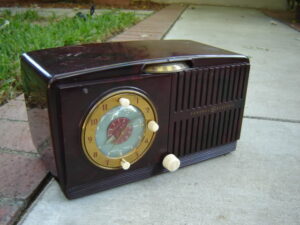 As we inch closer and move up this list of, if not the greatest, than at least one man's most beloved singles from the decade of the '60s, below for your consideration please find songs #21 through #25. And again, I truly hope someday you'll share with me your list, just as I am sharing with you mine. After all, as a dear friend explained to me not too long ago, this exercise is less about music than it is about a connection -- yours and mine.
As we inch closer and move up this list of, if not the greatest, than at least one man's most beloved singles from the decade of the '60s, below for your consideration please find songs #21 through #25. And again, I truly hope someday you'll share with me your list, just as I am sharing with you mine. After all, as a dear friend explained to me not too long ago, this exercise is less about music than it is about a connection -- yours and mine.
Enjoy.
Desert Island Jukebox: Part 1
Desert Island Jukebox: Part 2
Desert Island Jukebox: Part 3
Desert Island Jukebox: Part 4
Desert Island Jukebox: Part 5
Desert Island Jukebox: Part 6
Desert Island Jukebox: Part 7
Desert Island Jukebox: Part 8
Desert Island Jukebox: Part 9
Desert Island Jukebox: Songs 26 thru 30
Desert Island Jukebox: Songs 21 thru 25
Desert Island Jukebox: Songs 16 thru 20
Desert Island Jukebox: Songs 11 thru 15
Desert Island Jukebox: Songs 6 thru 10
Desert Island Jukebox: Songs 1 thru 5
21. Catch the Wind
Donovan
1965
Exhibit A for the difference between a song and a recording of that song. Because while the single version of this tune ranks this high on my list, a later album cut of the very same song by the very same singer doesn’t deserve to be within ten city blocks of it. When Donovan first recorded Catch the Wind in the winter of ‘65 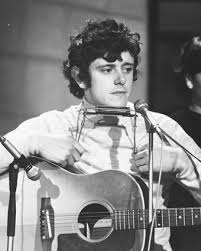 and released it as his very first U.S. single, it was a disarmingly beautiful and almost achingly melancholy folk-ballad about unrequited love that clocked in at just over two minutes. That 45, which I had on the yellow Epic label, featured a lone acoustic guitar, some gently echoed lead vocals and a few strings playing softly underneath. But when Donovan released his first greatest hits album, still on Epic and just a year or two later, for some reason he went back into the studio and re-recorded this one, slowing down its tempo markedly and killing both the soft echo and strings. The change may have seemed minor on the surface, but for fans of the original, like me, it fundamentally destroyed something in it, killing what had always been a sort of gentle magic. The new record was rendered, at least to sensitive ears, if not unlistenable, then as fundamentally different as night and day; as different as caring never to hear a song again and putting it front and center on the jukebox of your mind.
and released it as his very first U.S. single, it was a disarmingly beautiful and almost achingly melancholy folk-ballad about unrequited love that clocked in at just over two minutes. That 45, which I had on the yellow Epic label, featured a lone acoustic guitar, some gently echoed lead vocals and a few strings playing softly underneath. But when Donovan released his first greatest hits album, still on Epic and just a year or two later, for some reason he went back into the studio and re-recorded this one, slowing down its tempo markedly and killing both the soft echo and strings. The change may have seemed minor on the surface, but for fans of the original, like me, it fundamentally destroyed something in it, killing what had always been a sort of gentle magic. The new record was rendered, at least to sensitive ears, if not unlistenable, then as fundamentally different as night and day; as different as caring never to hear a song again and putting it front and center on the jukebox of your mind.
22. Billy Stewart
Secret Love
1966
I once read a book titled (I believe) The Rolling Stone Book of Rock Lists. It was a fun read and a pretty cool (and at the time unique) concept as writer Dave Marsh, then of the magazine, polled different music stars and personalities of different ages and walks of life and asked them to list their favorite songs, artists, 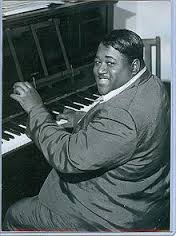 performances, etc. in varied and various rock categories, genres, subgenres and esoteric niches. And one list I vaguely recall was (I think) Paul McCartney’s ten favorite performances by a rock drummer. At or near the top of McCartney’s list of skin-pounding greatness he cited Louie, Louie by the Kingsmen, after which he asked simply and with a clear sense of awe, “Who was that guy?” That was my feeling exactly when I first heard this blistering interpretation of an otherwise willowy and lilting Doris Day ballad nearly a half century ago. And McCartney’s sense of awe remains with me today. The only difference is, perhaps unlike Sir Paul, I now know who my guy was. Playing drums behind Billy Stewart that day in the Chess studios on South Michigan Ave in Chicago and performing the most explosive (yet tasteful) bit of rock 'n soul rhythm-making I have, or probably ever will hear in my life, was little-known Morris Jennings, a jazz drummer and former Chess sideman who apparently still lives on the South Side, and who I now realize I may have to look up some day, if only to shake his hand. (And, by the way, if you’re going to listen to this one, make sure, like a few others on this list, you crank up the volume first.)
performances, etc. in varied and various rock categories, genres, subgenres and esoteric niches. And one list I vaguely recall was (I think) Paul McCartney’s ten favorite performances by a rock drummer. At or near the top of McCartney’s list of skin-pounding greatness he cited Louie, Louie by the Kingsmen, after which he asked simply and with a clear sense of awe, “Who was that guy?” That was my feeling exactly when I first heard this blistering interpretation of an otherwise willowy and lilting Doris Day ballad nearly a half century ago. And McCartney’s sense of awe remains with me today. The only difference is, perhaps unlike Sir Paul, I now know who my guy was. Playing drums behind Billy Stewart that day in the Chess studios on South Michigan Ave in Chicago and performing the most explosive (yet tasteful) bit of rock 'n soul rhythm-making I have, or probably ever will hear in my life, was little-known Morris Jennings, a jazz drummer and former Chess sideman who apparently still lives on the South Side, and who I now realize I may have to look up some day, if only to shake his hand. (And, by the way, if you’re going to listen to this one, make sure, like a few others on this list, you crank up the volume first.)
23. Groovin’
Rascals
1967
There are summer songs and there are summer songs. There are those that – as evocative and wildly popular as they may be – seem hell-bent on hitting us over 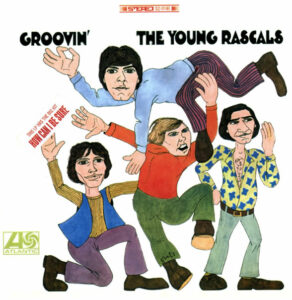 the head with their, I don’t know, summerness; their crashing waves, their convertibles, their schools-out joy, their girls on the beach, their tape decks playing old favorites, their sun-washed days and moonlit nights, and, of course, their utter insistence on using the word summer. Then there are others; those that only subtly imply summer, gently evoke summer, and somehow simply are summer. Those have always been my favorites. My friends, please enjoy not only the finest of those, but – at least for this child of the winter solstice and aging, often frozen, snow-bound and sun-starved boomer – the greatest and most evocative summer song of our lifetime; a stunning two and a half minute masterpiece of blue-eyed soul that weaves its web of warm, sun-drenched summer magic without once even mentioning the season.
the head with their, I don’t know, summerness; their crashing waves, their convertibles, their schools-out joy, their girls on the beach, their tape decks playing old favorites, their sun-washed days and moonlit nights, and, of course, their utter insistence on using the word summer. Then there are others; those that only subtly imply summer, gently evoke summer, and somehow simply are summer. Those have always been my favorites. My friends, please enjoy not only the finest of those, but – at least for this child of the winter solstice and aging, often frozen, snow-bound and sun-starved boomer – the greatest and most evocative summer song of our lifetime; a stunning two and a half minute masterpiece of blue-eyed soul that weaves its web of warm, sun-drenched summer magic without once even mentioning the season.
24. Suspicious Minds
Elvis Presley
1969
It’s not so much rock, pop, or even R&B, as it is gospel – white boy-gospel. And not that staid and stodgy, stiff-collar Old Rugged Cross stuff either, or that prim and proper How Great Thou Art crap. I’m talking good old fashioned, hand-clapping, chest-swelling, sweaty, swaying, Amen-spouting, throw your head back, toss your arms skyward, and praise Jesus in your Sunday-best gospel. You know; the kind born in the cotton fields, nurtured by Baptist choirs throughout the South, introduced to northeast factory towns, and then made fundamental, if not essential to the God-fearing, African American experience; a brand that 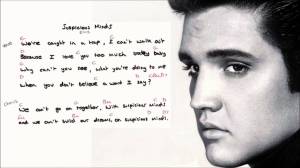 pulses and throbs and repeats over and over, and each time with greater intensity until, somehow, spirits take flight and souls soar. And it is from this constant, pounding repetition of a single phrase that Black gospel draws its ability to lift, and sometimes even levitate the spirit – while inviting anyone within earshot to savor a taste of God's kingdom and His glorious hereafter. That’s why it helps to realize this song spends its first half just setting up its second, and why over the course of its final two minutes it goes from simple Top 40 hit to spiritual force-of-nature. As produced by studio legend Chips Moman, one of the architects of the legendary Memphis sound, Suspicious Minds starts out innocently enough, at least until around the 2:50 minute mark, at which point Elvis goes into full-scale, call-and-answer mode and starts repeating and repeating, “We’re caught in a trap. I can’t walk out. Because I love you too much, baby,” while a chorus of female voices, after supporting the King during each call with a low, rumbling murmur, answers him with an explosive and joyous “WEEEE-OOOO-OOOO-OOOO-EEEE.” But the genius of this one goes beyond a simple vocal arrangement. It's the original 45's now-famous false ending at roughly the 3:20 mark, during which Elvis' regular producer, Felton
pulses and throbs and repeats over and over, and each time with greater intensity until, somehow, spirits take flight and souls soar. And it is from this constant, pounding repetition of a single phrase that Black gospel draws its ability to lift, and sometimes even levitate the spirit – while inviting anyone within earshot to savor a taste of God's kingdom and His glorious hereafter. That’s why it helps to realize this song spends its first half just setting up its second, and why over the course of its final two minutes it goes from simple Top 40 hit to spiritual force-of-nature. As produced by studio legend Chips Moman, one of the architects of the legendary Memphis sound, Suspicious Minds starts out innocently enough, at least until around the 2:50 minute mark, at which point Elvis goes into full-scale, call-and-answer mode and starts repeating and repeating, “We’re caught in a trap. I can’t walk out. Because I love you too much, baby,” while a chorus of female voices, after supporting the King during each call with a low, rumbling murmur, answers him with an explosive and joyous “WEEEE-OOOO-OOOO-OOOO-EEEE.” But the genius of this one goes beyond a simple vocal arrangement. It's the original 45's now-famous false ending at roughly the 3:20 mark, during which Elvis' regular producer, Felton 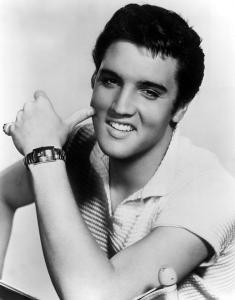 Jarvis – aware of a disc jockey's tendency to talk over a song's fade-out – took the liberty of lowering the recording's volume and keeping it low for a full 15 seconds to give any DJ the sense that the record was, indeed, ending. But then, just as it seemed the 45 was about to fade to nothingness, he suddenly restored the volume and moved Elvis and the ladies back to center stage where they belong, knowing full well that any yakking DJ would soon find himself swallowed whole by a tidal wave of traps, burning love, and soaring, almost spiritual wooo-oooos. It was non-traditional, and it didn't make the main producer, Moman, very happy, by any means. But it added to the subsequently mythology this recording would achieve. Suspicious Minds may not be gospel, my friends, but it's as close a pop gets. Look, even if you’re not an Elvis fan, or perhaps are of the mindset he was just one more talented white boy who made jillions ripping off the very Black artists he loved growing up, get over yourself. Instead, some evening sit alone in a darkened room and allow your yourself to get religion. Grab yourself an adult beverage, put on this remarkable recording, dispel yourself of any preconceived notions, and just crank up the volume. Then allow yourself – perhaps for the first time ever – to unlock your mind, unburden your soul, and let that tired spirit of yours soar to the heavens.
Jarvis – aware of a disc jockey's tendency to talk over a song's fade-out – took the liberty of lowering the recording's volume and keeping it low for a full 15 seconds to give any DJ the sense that the record was, indeed, ending. But then, just as it seemed the 45 was about to fade to nothingness, he suddenly restored the volume and moved Elvis and the ladies back to center stage where they belong, knowing full well that any yakking DJ would soon find himself swallowed whole by a tidal wave of traps, burning love, and soaring, almost spiritual wooo-oooos. It was non-traditional, and it didn't make the main producer, Moman, very happy, by any means. But it added to the subsequently mythology this recording would achieve. Suspicious Minds may not be gospel, my friends, but it's as close a pop gets. Look, even if you’re not an Elvis fan, or perhaps are of the mindset he was just one more talented white boy who made jillions ripping off the very Black artists he loved growing up, get over yourself. Instead, some evening sit alone in a darkened room and allow your yourself to get religion. Grab yourself an adult beverage, put on this remarkable recording, dispel yourself of any preconceived notions, and just crank up the volume. Then allow yourself – perhaps for the first time ever – to unlock your mind, unburden your soul, and let that tired spirit of yours soar to the heavens.
25. Come Saturday Morning
Sandpipers
1969
My first week of college, our sister school, Nazareth aired a free movie a bunch of us freshman geeks went to see. “Sterile Cuckoo” was the bittersweet tale of two square pegs who as first year college students find each other, fall in and out of love, and in the process help each other take the first wobbly steps toward adulthood. The 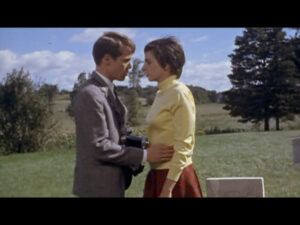 movie was shot in nearby Hamilton, NY, not too far down Route 20 from where we were that night, and featured for a theme this somewhat sappy but at times painfully beautiful ballad. Later that same year, while in my cups one Friday night, I happened to meet a girl. Her name was Nancy. Nancy was beautiful, she clearly thought I was kinda cute, and we playfully flirted on and off for the next hour or two. Finally I asked her out on Saturday night. She smiled, nodded yes, grabbed a pen and, amid a sea of elbows and plastic cups, scribbled the number of the pay phone in her dorm across my palm. But when night turned to day and Saturday rolled around, I never bothered to call. Just completely blew her off, which didn't even give me pause at the time. But then, a few months later or so, I started thinking about Nancy and began asking around about her. Someone told me they thought she’d left Nazareth and transferred to the nearby state school in Geneseo. Now it’s three years hence, springtime to be exact. I’m back at Nazareth for graduation, which is being held on the school’s front lawn, where I'm surrounded by a bunch of proud parents, ivy-covered walls and majestic stone buildings. It is a magnificent day, with just a few wisps of white across a brilliant blue sky. As I turn to leave, I stop dead in my tracks and behold standing there and staring at me from a distance of no more than 30 yards, Nancy, who has apparently
movie was shot in nearby Hamilton, NY, not too far down Route 20 from where we were that night, and featured for a theme this somewhat sappy but at times painfully beautiful ballad. Later that same year, while in my cups one Friday night, I happened to meet a girl. Her name was Nancy. Nancy was beautiful, she clearly thought I was kinda cute, and we playfully flirted on and off for the next hour or two. Finally I asked her out on Saturday night. She smiled, nodded yes, grabbed a pen and, amid a sea of elbows and plastic cups, scribbled the number of the pay phone in her dorm across my palm. But when night turned to day and Saturday rolled around, I never bothered to call. Just completely blew her off, which didn't even give me pause at the time. But then, a few months later or so, I started thinking about Nancy and began asking around about her. Someone told me they thought she’d left Nazareth and transferred to the nearby state school in Geneseo. Now it’s three years hence, springtime to be exact. I’m back at Nazareth for graduation, which is being held on the school’s front lawn, where I'm surrounded by a bunch of proud parents, ivy-covered walls and majestic stone buildings. It is a magnificent day, with just a few wisps of white across a brilliant blue sky. As I turn to leave, I stop dead in my tracks and behold standing there and staring at me from a distance of no more than 30 yards, Nancy, who has apparently  travelled down from Geneseo. If possible, she looks even more beautiful than I remember. I raise an eyebrow, crack a smile, and begin to take a step toward her, a cocksure and strutting buck of a soon-to-be college grad. But as I do, her eyes flash menacingly and she threateningly holds up a single finger, as if to say, “Don’t you dare.” Then, the moment she turns to walk away without saying a word and disappear into the crowd, this wistful melody begins to chime in the Nazareth bell tower. And as I listen to its first few notes clang down from above me, in that flash of an instant I realize this woman I hardly know is giving me the greatest lesson I will learn in four years of college. Opportunity is fleeting and it rarely identifies itself. And if you wait too long, every window in life – even those that seem forever there, always within arm’s reach, and constantly open – will invariably close; some quietly, some imperceptibly, and most of them forever.
travelled down from Geneseo. If possible, she looks even more beautiful than I remember. I raise an eyebrow, crack a smile, and begin to take a step toward her, a cocksure and strutting buck of a soon-to-be college grad. But as I do, her eyes flash menacingly and she threateningly holds up a single finger, as if to say, “Don’t you dare.” Then, the moment she turns to walk away without saying a word and disappear into the crowd, this wistful melody begins to chime in the Nazareth bell tower. And as I listen to its first few notes clang down from above me, in that flash of an instant I realize this woman I hardly know is giving me the greatest lesson I will learn in four years of college. Opportunity is fleeting and it rarely identifies itself. And if you wait too long, every window in life – even those that seem forever there, always within arm’s reach, and constantly open – will invariably close; some quietly, some imperceptibly, and most of them forever.
